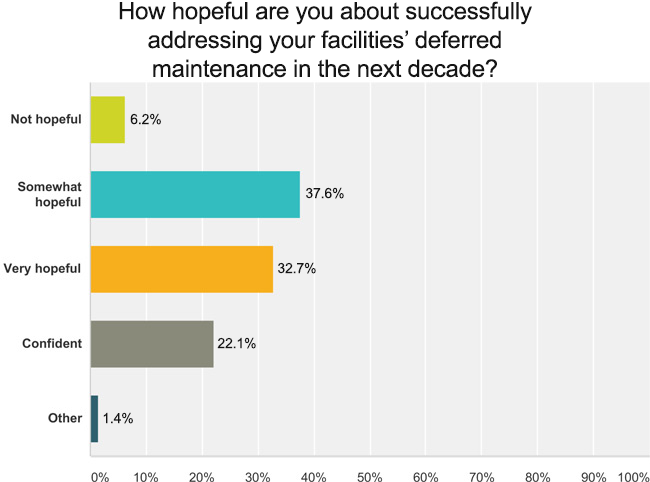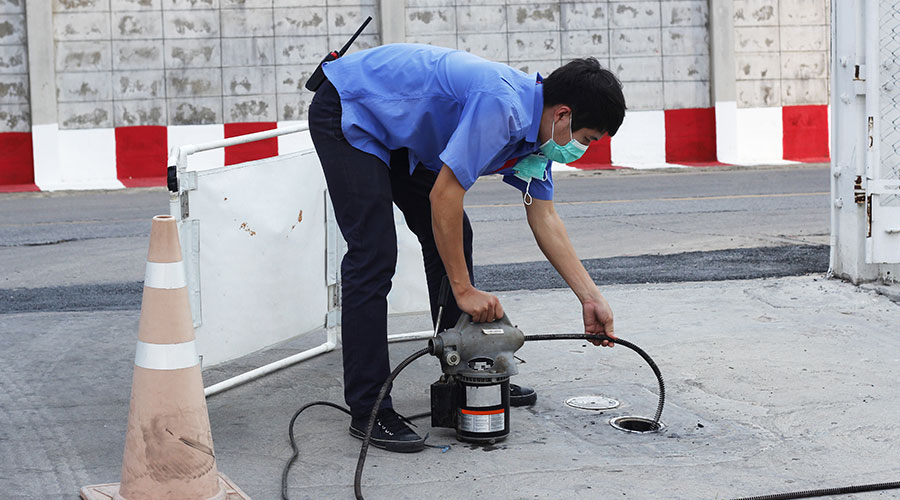Deferred Maintenance: Survey Says Managers Confident About Overcoming Backlog
Part 1 of a 4-part article on results of deferred maintenance survey
Rarely do maintenance and engineering managers use the word optimism to describe the deferred maintenance crisis in institutional and commercial facilities.
Instead, deferred maintenance horror stories have become all too common, as in the national parks need $11.5 billion to address essential repairs and New York City libraries need $1.1 billion to address heating and cooling problems and repair broken elevators and malfunctioning windows. But through all of the examples of deferred maintenance, the situation might not be as dire as it often seems.
A recent Facility Maintenance Decisions survey of more than 550 in-house maintenance and engineering managers reveals that many see at least some light at the end of the tunnel.
About 55 percent of survey respondents say they are either “very hopeful” or “confident” that their organizations will address their deferred maintenance concerns within the next decade. Another 38 percent say they are “somewhat hopeful” of solving the problem in that time.
“It seems like people are fairly optimistic about addressing deferred maintenance issues, which is positive,” says Darren Harvey, vice president and principal with Smith Seckman Reid, a Kansas City, Mo., firm providing engineering design and facility consulting commercial and institutional facilities. “It is a battle that my clients go through every year is to make the list determining how many millions of dollars they need to spend on deferred maintenance items, and then they’re generally not that optimistic that’s going to be funded.”
The optimism “has to do with most systems coming out of a recession, and if they got used to how it was during the recession, they are feeling a little better about it now,” he says.

Related Topics:

















